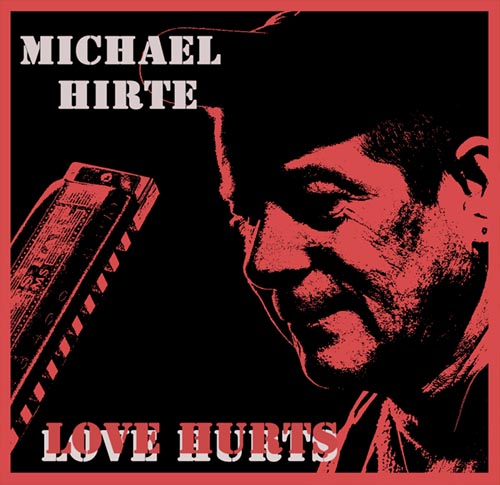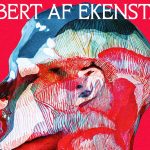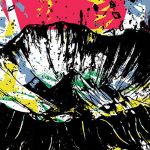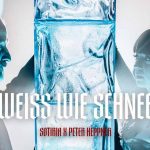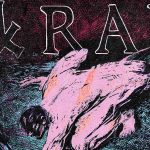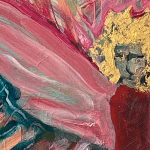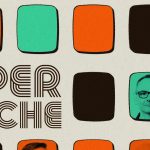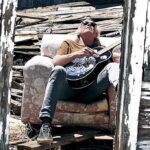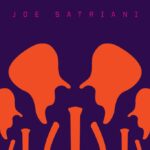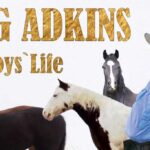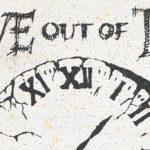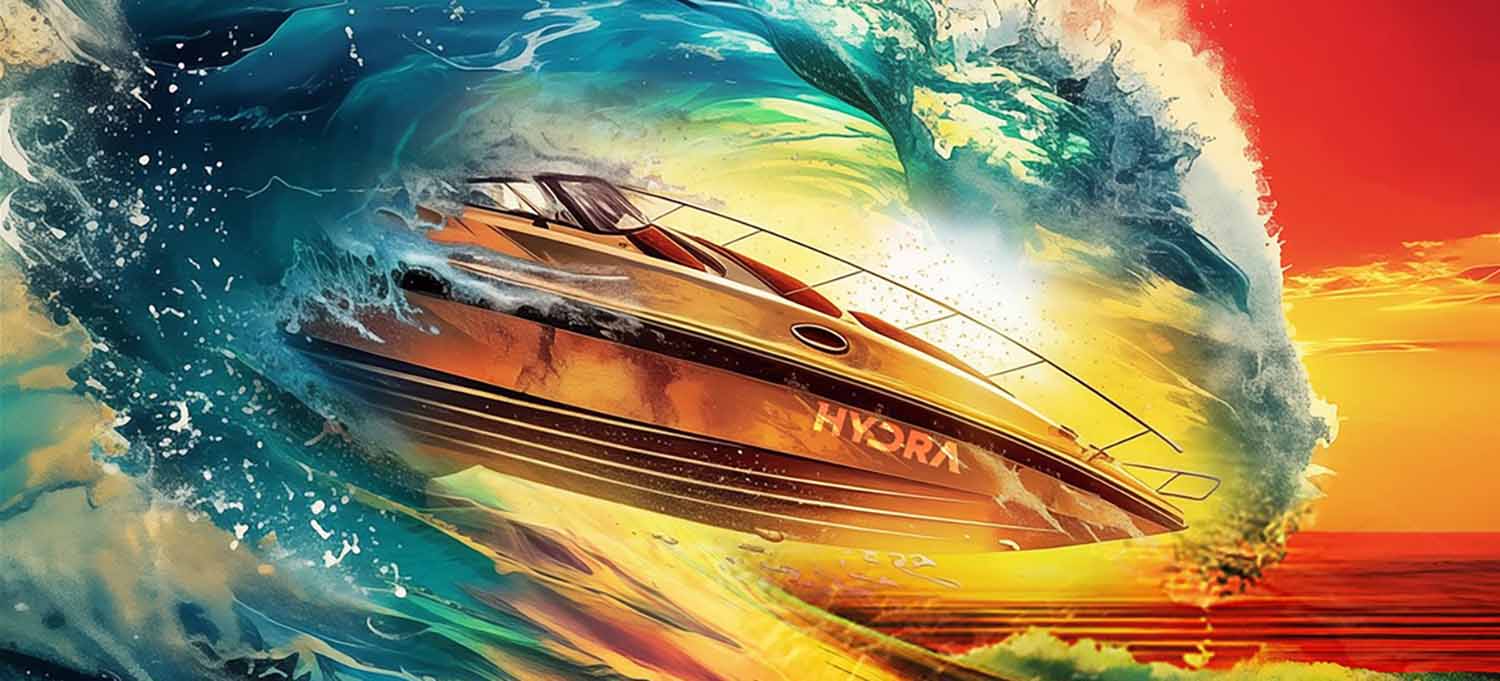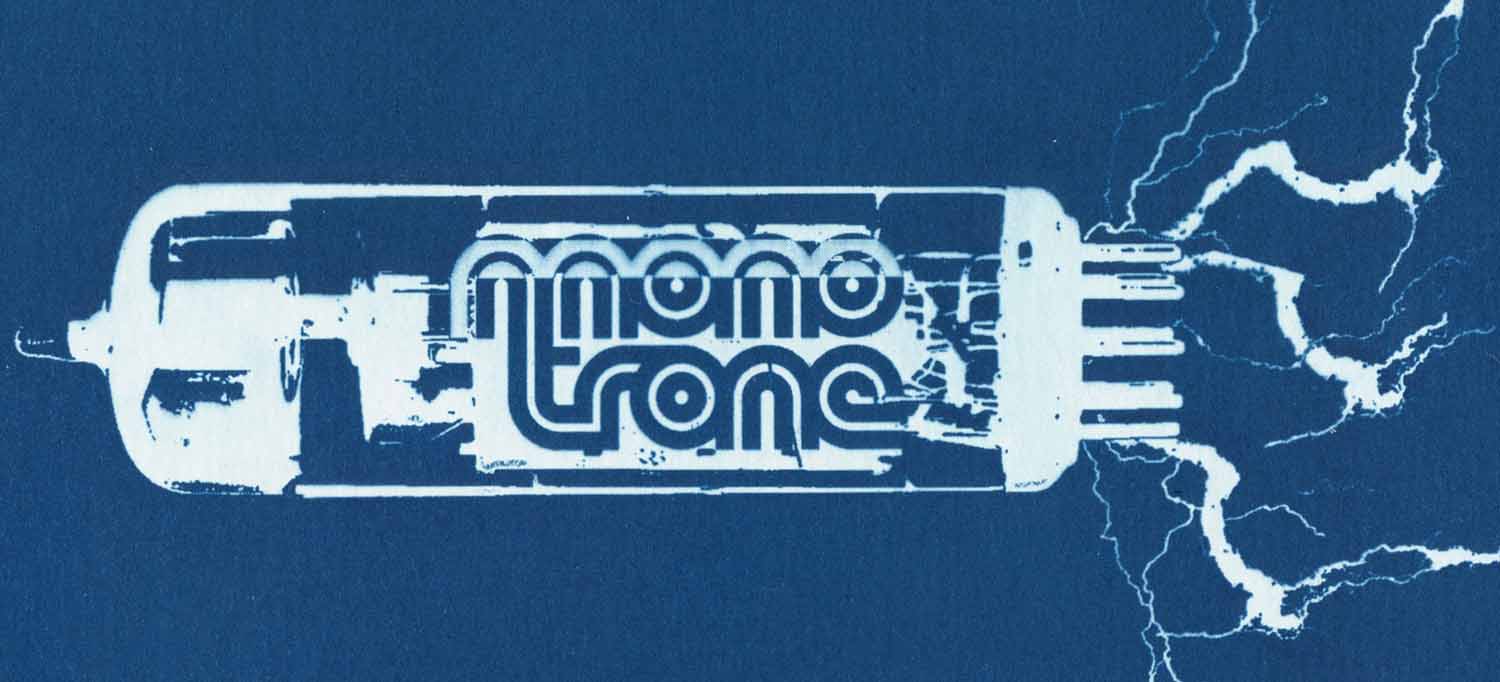Michael Hirte - Love Hurts
Flyctory.com Pros
- Great instrumental performance on the harmonica
- A nice selection of tracks
- Some songs are really well arranged (and better than the original)
Flyctory.com Cons
- Too many songs are too corny, too schlager-alike
He simply calls himself Der Mann mit der Mundharmonika – “The Man With The Harmonica”: Michael Hirte fascinated Germany at the Supertalent talent show (equiv. to Germany’s Got Talent) with his instrument and emotional interpretation. Thirteen years after his great success, he is releasing another album called Love Hurts. Release date is 7th May 2021.
Michael Hirte – About The Artist
Michael Hirte was born on 10th October 1964 in Spremberg, GDR, close to the border to Poland. He initially live in the Spreewald region, later in Potsdam near Berlin in Düren near Cologne. He used to work as a truck driver, by a heavy accident blinded his right eye and caused a stiff leg. This finally lead to the situation that he did not have work, when he joined the Supertalent show. Some 72 per cent of the phone votes favored Hirte, when he won the show on 30th November 2008. His debut album was simple called Der Mann mit der Munhdhamonika and got a triple platinum record in Germany. The album lead the charts in Germany, Switzerland and Austria. The sophomore album Der Mann mit der Mundharmonika still topped the Austrian charts and lead to golden records in Germany and Austria.
Even though the sales and chart positions slowly decreased, he for example still had a golden record with Liebesgrüße auf der Mundharmonika (“Love Greetings on the Harmonica”). The most popular single was his Supertalent winner song Ave Maria. Including two Christmas albums (thereof one platinum album in Germany and Austria), Love Hurts is already Hirte’s thirteenth studio album.
Michael Hirte – Love Hurts – Track by Track
The thirteen songs take 41 minutes. Interestingly, I could not find a single release before the album. Most of the songs are covers, but the album also contains four originals.

1. Arms of Mary
The album starts with a 1976 classic, originally performed by the Sutherland Brothers & Quiver. Of course, finally, Michael Hirte’s a bit of plushy and over-emotional songs are a matter of taste. But he is just doing his thing. He is doing it good. The harmonica really feels to replace the vocalist and sometimes even seems to be the “better voice”. Promising starter.
2. Angels
One thing I like about the album Love Hurts is that Hirte is also touching a nice range of songs and eras – and he is not hesitating to go for the very big ones. I would guess that Angels, originally by Robbie Williams, is really tough because it comes with such a range of notes. Hirte masters this song. bad luck that he did not try out even more modern songs in here.
3. Love Hurts
Back to the 1960’s: the next song is a classic, Love Hurts, originally performed by The Everly Brothers. Hirte’s interpretation is definitely rather to the softer sound of the original than to the rocking way of doing it by Nazareth in the mid-1970’s. But there is even a slight guitar solo by his background band. So there is a Love Hurts touch for every generation.
4. Boat On The River
There album takes the easy route in a way that Hirte has selected a couple of songs most people (especially in his core audience) know. You can relate to the songs (as you know anyway), you know the lyrics – and you are in the song already from the very first moment. Same thing applies to Boat on the RIver, which Styx made big in 1979. There is not that much folk rock touch any more, but rather the spirit of easy listening, but it is well done.
5. Song Sung Blue
There is a certain focus on the 1970’s in the album, for sure. Song Sung Blue, Neil Diamond single, still spreads the touch of country pop the song had in the past. The scattered backing vocals are a bit too much, though.
6. Mein Lied für dich
Mein Lied für dich (“My song for you”) is the first original on the album. The track has a very nice focus on the harmonica again at the beginning. Sometimes I feel, the producers want to give the a songs too much of a schlager touch. Later in the track, the drums and the strings rather feel disturbing to me.
7. Mein Kindertraum
Mein Kindertraum (“My childhood / children dream”) is another original. The backing melodies are a really monotonous (if the keyboarder and guitarist have to play that one live on stage, you have to pray that they don’t fall asleep). This leads to a strange effect on my side: even though these parts of the track add so little value, I more an more concentrate on them and ask myself whether they really have to play the same all the time. Bad luck that it distracts that much from the key instrumental factor here.
8. No More Boleros
I have to admit that I did not know the original of this track, a 1989 Peter de Wijn song, which is based on the famous Bolero by Ravel. I have to admit that I can neither relate to the original nor to Hirte’s version too much.
9. Please Release Me
There are numerous versions of this song (which is in fact solely called Release Me and has been an Eddie Miller single in 1949 already). This song gives me too much of a James Last feeling. It is much sopping than traditional schlager. Especially when the backing singers are in fact singing lyrics, I am just too tempted to press the forward button. You have to be more romantic than me to love that. I already disliked the Engelbert Humperdinck version, I am sorry.
10. Right Here Waiting
After that emotional experience, I was looking forward to this Richard Marx classic. His 2020 album Limitless was such a great one and boosted my respect for this artist massively again. Of course, it is always a very small difference between an emotional interpretation by Hirte and a just too corny track – but I feel, this song is again right on point. A great original and a great new version.
11. Danke mein Engel
Three songs outstanding and still two originals missing – thus, it is urgently time for a Hirte composition. His originals are really nice listens and fit well to the spirit of the album. This also applies to Danke mein Engel – “Thank you, my angel”
12. Der kleine Prinz
This song is a German schlager song of the late previous century. This time, I definitely prefer the Hirte version over the original by Peter Orloff – but I would have strongly voted in favor of leaving this three chord 1990’s electronic organ style tootling in the background. Makes the song feel really old.
13. Dir so nah
Dir so nah (“So close to you”) is the closing song of the album – and it is another original. A very slow track, which unfortunately sometimes feel a bit of boring.
Michael Hirte – Love Hurts – Spotify
Here is Love Hurts on Spotify:
Michael Hirte – Love Hurts – My View
I feel I almost pointed out the key issue of Love Hurts in my comments about Right Here waiting: sometimes, Hirte is doing really well done, emotional instrumental pop tracks – but if he and his team are just pushing a bit too much, the songs get soppy and just feel like a terrible schlager song without vocals. Unfortunately, some few tracks are rather in the second area. So sad, as these songs also distract you from Michael Hirte’s excellence on his instrument. His fans will love this album and if you like traditional schlager, you might as well. I like it – but it is not in the top rankings.
Instrumental Music
Here are all postings about Instrumental Music:

The last post of the year solely dealing with music is "traditionally" my list of favorite albums and EPs. On ...

Due to physical issues, I had to completely stop publishing reviews on Flyctory.com this week. One impact was that I ...

The German band Flying Circus is celebrating their 35th band anniversary. Ain't that a good reason to releasing some new ...

31st October, Happy Halloween! Especially on the North American music market, Trick or Treat creates a rather low volume new music ...

Independence Day weekend in the United States is slowing down the music market significantly. Thus, it has not been that ...

I just met Jim Kimo West just on last weekend. As the long-time guitarist of Weird Al Yankovic, he is currently ...

In general, I really like instrumental music. Creating atmosphere and telling stories without the use of language can be a ...

It is quite a while ago since there have been major releases by Swedish artist Albert af Ekenstam. His last ...

The Scottish band Mogwai is celebrating their thirtieth band anniversary this year. Thus, you could see their eleventh studio album ...

I'm in Finland this week, featuring two floorball match. However, the Nordic country is not represented in my Songs of the ...

On their Bandcamp site, CKRAFT are describing themselves as craftsmen of an elaborate and powerful sound. The French band is ...

Time to look back to the Flyctory.com year of music, part 2. In my 30th December 2024 posting, I am ...

The first one of my Best of postings at the end of the year is always reserved for looking back to my ...

My list of new song releases is really short this week again. There were not that few new releases, but ...

Jim "Kimo" West albums are always a treat to me. The artist you typically know as the guitarist of "Weird ...

Nowadays, I receive a lot more promos for albums and EPs than I can process. Some of the releases I ...

Somehow, I can never now if the upcoming week is a "good one" or "bad one" regarding new releases. While ...

I have to give in - as a music blogger, I should have known Lindsey Stirling way before 17th May ...

Returning from the World Floorball Championships in Finland, heading directly to a business trip to Paris - this week was ...

That's all? That's roughly I thought when I finally had a rather short long list of candidates for my Songs of ...

Germany is sunk in strikes of different kinds, mainly in transportation business. I have been impacted this week by that ...

Is this really the first time I am sharing my thoughts about a The Dead South release with you? I ...

A Symphony Orchestra Composers from the World of Metal A Wild Conductor A truly unique Solist Attitude and Talent This ...

Unfortunately, I could not complete the Country Christmas Playlist this year due to technical issues. However, since the days become ...

Over two million followers on YouTube, slightly less on TikTok and still about half a million on Instagram - Indonesia's ...

Source is the fourth album by the German band Alphawezen. However, the most recent album release has happened fourteen years before ...

Halloween is not that much of a big deal in Germany - but some parts of my home country have ...

Finally, he is in Germany! I was so excited to see Jim Kimo West at the Nacht der Gitarren ("Night of the ...

Big release day for Collapse Under The Empire: with Recurring, they don't just publish their tenth studio album overall, the German ...

I have quite intense weeks at work, not too many thrills on the Flyctory.com side. The next weeks will have ...

Electronic music is typically neither the genre I listen to personally nor the type of music which frequently represented in ...

A new album by Jim "Kimo" West is always a very special moment for me. The Grammy-winning artist is a ...

Some surprise in this week's posting: I selected a very special instrumental track to lead my Songs of the Week ...

Suprise, but no surprise? Stephen Jay already stated that his new album understatement is almost ready around the Dusseldorf show ...

Today is a very special day to me: Weird Al Yankovic is playing is first-ever concert in Germany tonight, at ...

I can't really you explain you my sympathy... But I ran into Kammer III, the latest album by Malte Vief ...

I am always glad when I run into genres, which are not that frequently covered on Flyctory.com. Indeed, instrumental music ...

Especially if you frequently watch concerts in Germany and neighboring countries, you simply know Tina Tandler. You might not know ...

Jazz meets funk - the concept of the self-titled album by the band Superläuche (which is hard to translate, roughly ...

Especially in the early 1990's, the German project U96 was very present in the European electronic music scene. Some thirty ...

I had a long list of songs for my Songs of the Week... and after I composed a nice order of ...

Leo Rojas is named the "pop star of pan flute". Especially during the last years, his instrumental interpretations of pop ...

Which album would suit better this week to be the preview on Flyctory.com than Stephen Jay's Vita Beata? Just in ...

Some two years after I reviewed his album Shapeshifting, Joe Satriani is back with a new album, Elephants of Mars. I was ...

One thing I really love about this new category Songs Of The Week is that it surprises me again and again ...

Instrumental covers of big 1980's songs, surf music and beat style - that's about the story of the latest album ...

2021 definitely lifted Flyctory.com to another level. The community is steadily increasing - days with less than 2,000 page hits ...

What are you doing when you are making new friends at the party celebrating your recent Bachelor graduation in contemporary ...

Billy Strings is releasing his third solo album on 24th September 2021. As the predecessor lead to a Grammy Award, ...

I just have to admit: I like to listen to very few kinds of jazz, but I am absolutely not ...

Jim "Kimo" West is already a quite frequently featured artist on Flyctory.com. "Kimo" is more and more emancipated from being ...

292 Media Review postings - looking into new music (and a few other) releases was definitely some sort of core ...

2020 is about to come to an end - and the last three posting of the years re about to ...

It is hard to put a create a good definition of the music Andrew Bird is doing. It is folk, ...

After his 2015 album Guitar Stories: Slack Key & Beyond, Jim "Kimo" West is back in the virtual record stores with ...

Just in time: one day before Jim "Kimo" West will release his new album More Guitar Stories, I had the opportunity ...

There are these very special e-mails in your life. One of those I received in mid-June 2020, when one of ...

I was really looking forward to have this chat with Rob Favotto, who is an Australian artist doing instrumental music ...

It is really tough to select the right achievement to describe Joe Satriani's career in one fact. Over ten million ...
Postings related to Talent Shows
Blog posts, artists or reviews – here are all postings which are somehow related to talent shows:

I am still on the Faroe Islands, briefly before I am about to leave my favorite islands. There is also ...

Just about a month after I saw Randall King at the Cologne Club Volta, I was back there again on ...

On 10th February 2023, I ran into the single release All my Songs by the German duo Mael & Jonas (in fact, ...

Ireland, the United Kingdom, Belgium, the Netherlands, USA, Canada - and of course Germany lay ahead of me for the ...

Since I started working with Flyctory.com, I present you a list of my favorite songs at the end of every ...

"Little Christmas" - as there is Thanksgiving in the United States, the volume of new releases is significantly reduced, just ...

Samuel Rösch became famous by winning the TV show The Voice of Germany. I already had a look into his music ...

It is twelve years ago since Börni released her last album. However, the Swiss artist gained some focus on my ...

A talent show changed the life of a teenage German artist - and the result is this album. Luna Klee ...

After featring the German pop duo Havet in my Songs of the Week edition of 29th July 2022, I now ...

Even though there are also some examples in the rock industry as well, boy bands are typically a pop music ...

Wow... This edition of my Songs of the Week was a huge bit of work. I simply had so many candidates for ...

Leo Rojas is named the "pop star of pan flute". Especially during the last years, his instrumental interpretations of pop ...

From ABC to the world of country music: Chayce Beckham did big in a TV talent show and is now ...

Doug Adkins new album A Cowboys' Life is already available for his fans via direct order as a physical copy. However, ...

When I listened to Michael Lane's album Traveling Son in October 2019, I absolutely enjoyed the sound of the US-German artist, who ...

Every week, I am scanning hundreds of new releases, albums and singles, to pick the right (and sometimes: the wrong) ...

Max Giesinger has grown his fan base in Germany steadily over the last years. Three years after his most recent ...

From TV talent show to her debut album - some one and a half year she became well-known to the ...

Cassadee Pope is back! Just about a year after she released the amazing EP Rise and Shine, the former The Voice winner is ...

Debut album by Ashland craft: after the female country singer grew quite a fan base by a strong TV talent ...

From a TV talent show to the top of the charts: Beatrice Egli definitely took profit of winning the tenth ...

One album out of the 6th August 2021 releases I was looking forward listening to especially was the self-titled one ...

I love the specific kind of country romance in press kits and country music artist promotion texts. About Andrew Jannakos, ...

People thought that the five girls of No Angels could become the German Spice Girls. They became talent show stars ...

A very interesting release with a talent show background: Brynn Cartelli won The Voice in 2018 - now she released her ...

Indigo by Noah Levi is another publication with talent show background: in young teenage years, Noah Levi became famous by ...

Since Stefanie Heinzmann won a TV talent show format in 2008, she is a well-known artist in the German speaking ...

Despite Mike Leon Grosch had a huge success in Germany in 2006, his career had quite a hit shortly thereafter ...

Sarah Lombardi's career started with a bit ups and downs in the German version of American Idol. Three years after ...

From the big talent show stage to the (virtual) record stores: After Samuel Rösch won the German The Voice in ...

Even though Giovanni Zarrella is singing in Italian, his music is definitely aiming to be sold on the German-speaking markets ...

At first sight, this is rather a blog posting for people outside Germany. At the time of reading, German residents ...

While many talent show candidates rather have a tough time in the "real world" in Germany, the US show winners ...

The story of Ross Antony is quite amazing: having an English education as a musical artist, Antony is nowadays a ...

There are not too many occasions in the recent past that German-speaking artists gained popularity by performing country music. Undoubtedly, ...

For many country music fans, the 18th September 2020 was some sort of day to look out for: The Speed of ...

Already the second EP of the year - while Lauren Alaina gave us her Getting Good in March 2020, she is ...

Surprise! While Kree Harrison's Chosen Family Tree had to be moved multiple times dues to Covid-19, the US country artist ...

Gabby Barrett made it well in American Idol and even better with I Hope. The fans were waiting for her debut album, ...

Covid-19 has a huge impact on the music industry. My home town Cologne's local country music heroes, Mrs. Greenbird, were ...

If you replace Freddie Mercury and tour with Queen, you are likely not that bad as an artist. While Lambert ...

Lauren Alaina is one of the countless acts, who made it into the music business by one of the big ...

One of the few German country/folk acts, which gained some international reputation in the past is Cologne-based Mrs. Greenbird. Before ...

In many countries, a good placement at The Voice almost feels like a guarantee to have some steps on the ...

Mrs. Greenbird was the only Germany-based band who were playing at the C2C debut in Berlin 2019. This definitely illustrates ...
